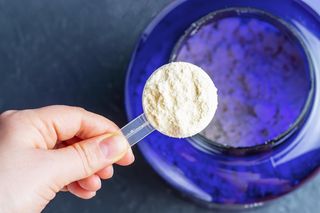Ask the doctor: I go to bed early, eat well and exercise – so why am I always exhausted by lunchtime?
Doctor Jennifer Grant answers your health queries
Factors including stimulation, mental health and eating patterns can all affect energy levels. Photo: Getty Images
Question: I am 48 years of age and feel exhausted by lunchtime. I go to bed at around 10.30pm and get up at 6.30am. Most nights I have a decent amount of sleep and I wake up feeling refreshed. I eat well and exercise regularly — weight training four times a week. I walk my kids to and from school and go to the park twice a week for a few hours after school so I get plenty of fresh air. I’m a bit overweight but nothing major. I had my bloods done recently and they were fine. I’m also on HRT and feel good on it. However, I find myself exhausted in the afternoons and craving a nap — I can hardly stay awake. Why is this and what am I doing wrong?
Dr Grant replies: There is so much good news in all you are telling me. You sleep well, you eat well (or at least think you do), you take plenty of light exercise and do resistance training every week. Your recent blood tests ruled out possible causes for fatigue such as anaemia, low white blood cell count, underactive thyroid, diabetes, kidney or liver failure and your iron stores/vitamin levels must have been normal range. You do not have concerns about your heart, lungs, gastrointestinal, joint or menstrual system.
Firstly, I would like to ask more about your typical diet. What are you eating and when? Is your diet high in carbohydrates or sugar? Do you drink two litres of water per day? Do you drink alcohol? Do you drink caffeine? What time and how many cups per day? If you are eating very little throughout your day, then sitting down to eat a big dinner, you may be experiencing a post-prandial slump in the evening.
Secondly, do you partake in zone two cardiovascular exercise? The classic example is being able to chat while running with a friend, which is approximately 60-70pc of your maximum heart rate.
If you have a smartwatch to monitor your heart rate while exercising, aim for about 180 minus your age in terms of beats per minute. Building 30-60 minutes of zone two exercise at least three days per week will improve your fitness and stamina.
Remember, the fitter you are, the longer you are likely to live and the more you will cruise through menopause (with or without HRT). Exercising gives you a great endorphin high and will improve your evening energy.
Thirdly, what about your mental health? Do you feel sad or depressed? Is there any personal or family history of a mood disorder? The first three key symptoms of depression are pervasive (most of the day, every day) low mood, low energy, and loss of interest in doing things.
Typically, the low mood in depression does not respond to a change in your circumstances and tends to be worse in the morning time. Associated symptoms include sleep disturbance, a significant change in appetite resulting in weight loss/gain, loss of libido, poor concentration, poor self-esteem and thoughts of worthlessness or excessive/inappropriate guilt.
Lastly, do you consider yourself fulfilled? Do you work outside the home or are you possibly missing the mental stimulation of the work environment? Maybe this is something you are not interested in right now or perhaps you would like to study something new? Building new neurons, making new connections, and challenging your brain may provide you with more energy.
You should consider further assessment of your diet, lifestyle and overall well-being. ‘Lifestyle medicine’ is a growing area which is led by medical doctors with further specialist training. There are six pillars of lifestyle medicine: exercise, sleep, food, stress management, smoking cessation and alcohol moderation.
Dr Jennifer Grant is a GP with Beacon HealthCheck
On This Day In History - July 3rd















